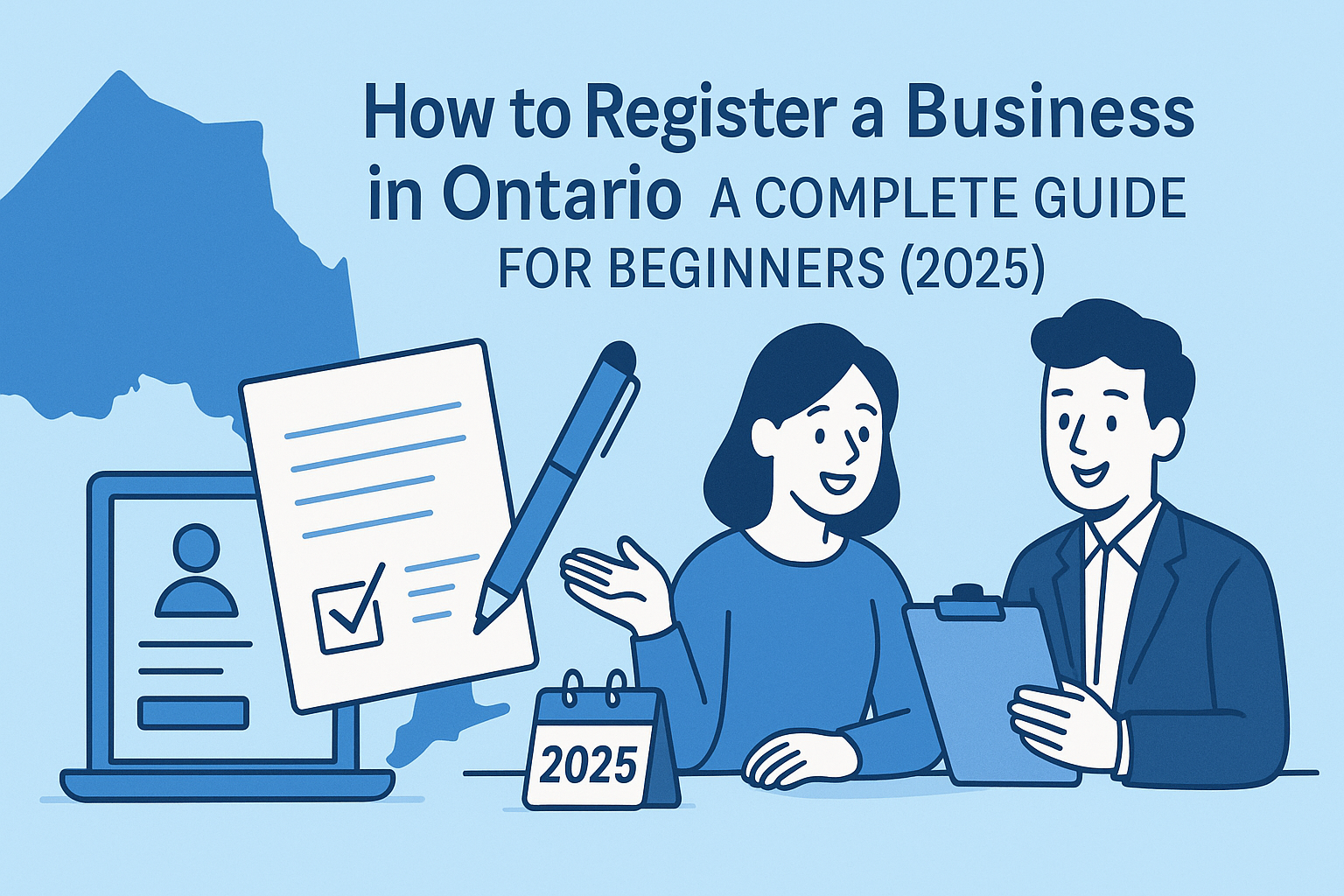Muddasir Law
Articles, News and Updates
Stay informed with the latest legal insights, news, and practical guidance for businesses and individuals in Canada. Our articles are written by experienced lawyers to help you navigate the evolving legal landscape with confidence.

Data Protection & Privacy
AI & Data Protection in Canada: How Bill C-27 and Global Trends Are Reshaping Data Protection
As AI technologies grow more sophisticated, Canadian businesses must prepare for sweeping legal changes under Bill C-27—a landmark reform that combines data privacy with artificial intelligence regulation. This article breaks down what the legislation means for businesses of all sizes, the new risks it introduces, and the steps you should take to stay compliant. Whether you're in SaaS, e-commerce, or professional services, understanding your obligations under Bill C-27 is critical. 👉 Learn how a qualified business lawyer can help you stay ahead of the curve.

Business Incorporation
How to Register a Business in Ontario: A Complete Guide for Beginners (2025)
Our complete 2025 guide explains how to register a business in Ontario, from choosing a structure (sole proprietorship, partnership, or corporation) to obtaining licenses, tax numbers, and permits. Learn about the updated Ontario Business Registry, CRA requirements, and common pitfalls—with expert tips to ensure your new venture starts legally compliant. Get professional registration help from Muddasir Law.

Business Incorporation
Securing Financing and Opening Business Accounts for Your New Business: A Guide for Aspiring Entrepreneurs
Starting a new business is an exciting venture, but it can come with challenges, especially when it comes to securing financing and opening business bank accounts. Whether you're launching a digital marketing agency or another type of business, understanding how to prepare financial statements, attract investors, and meet the requirements for opening business accounts is essential.

Business Incorporation
Navigating Legal and Regulatory Requirements for Business Incorporation in Canada: A Guide for Aspiring Entrepreneurs
Starting your own business is an exciting venture, especially for those who have spent years honing their skills in a particular industry. However, one of the most challenging aspects of launching a new business in Canada is navigating the complex legal and regulatory requirements involved in business incorporation.

Business Incorporation
Provincial vs. Federal Incorporation in Canada: Understanding the Key Differences in 2024
checking When starting a business in Canada, entrepreneurs have the option to incorporate either federally or provincially. While there are some differences between federal and Ontario corporations, it's crucial to understand both their similarities and differences.

Business Incorporation
Protecting Intellectual Property: A Crucial Step for Aspiring Entrepreneurs
Starting a business comes with many challenges, and one of the most crucial for new entrepreneurs—particularly in creative industries like digital marketing—is protecting intellectual property (IP). Whether it’s your brand, content, or proprietary ideas, securing your intellectual assets ensures that your hard work is legally safeguarded and can’t be exploited by others.

Immigration
Immigration to Canada: A Comprehensive Guide for Prospective Immigrant
Canada is a popular destination for immigrants from around the world, thanks to its high quality of life, strong economy, and welcoming multicultural society. The country's immigration policies are designed to attract skilled workers, entrepreneurs, students, and families, making it an attractive option for those seeking new opportunities.

Employment Law
A Guide to Canadian Employment Laws for Foreign Business Owners
Key Employment Regulations You Need to Understand When Hiring in Canada Expanding your business to Canada offers an array of opportunities, but it also comes with specific legal responsibilities, especially when it comes to employment law. Foreign business owners must familiarize themselves with Canadian employment regulations to successfully hire and manage employees. From federal and provincial employment laws to wage standards, termination rules, and employee benefits, this comprehensive guide outlines everything you need to know to comply with Canadian employment laws.

Immigration
Economic Opportunities for Immigrants in Canada: A Pathway to Prosperity
Canada is renowned for its strong economy, high quality of life, and welcoming attitude towards immigrants. These factors make it an attractive destination for individuals and families seeking new opportunities and a better future. This article explores the economic benefits and opportunities available to immigrants in Canada, highlighting how the country's inclusive policies and robust economy create a fertile ground for personal and professional growth.

Business Incorporation
Incorporating in Ontario as a U.S. Citizen
As a U.S. citizen, expanding your business into Ontario, Canada, offers exciting opportunities in a stable and growing economy. However, navigating the legal requirements and ensuring compliance with Ontario’s incorporation laws can be a complex process. This guide outlines the essential documents and key legal steps you need to incorporate in Ontario as a U.S. citizen.

Business Incorporation
Navigating the Complexities of Business Incorporation in Canada: A Step-by-Step Guide for Tech Startup in 2024
The first step in incorporating your tech startup is selecting the appropriate business structure. In Canada, you can choose between a federal corporation and a provincial corporation.

Immigration
AI in Immigration: How Technology is Changing the Application Review Process
In recent years, Artificial Intelligence (AI) has rapidly transformed the landscape of many industries, and immigration is no exception. In Canada, the Immigration, Refugees, and Citizenship Canada (IRCC) has been exploring the potential of AI to streamline and enhance the efficiency of immigration processes.

Business Incorporation
Navigating Investment and Equity Issues for Tech Startups: A Legal Guide
Launching a tech startup is an exciting yet complex journey, especially when it comes to managing investment and equity distribution. Many founders face challenges in ensuring that their investor agreements, equity splits, and shareholder terms are clear, fair, and legally binding. Without proper guidance, these issues can create friction down the line, potentially jeopardizing future funding rounds and the growth of the company.

Employment Law
Economic and Family Immigration Opportunities: How Canada’s New Immigration Levels Impact You
With the 2024–2026 Immigration Levels Plan, Canada is expanding its capacity to welcome skilled workers, entrepreneurs, and families. By increasing the number of immigrants to 500,000 annually by 2026, the Canadian government aims to address labor shortages, attract talent, and reunite families, creating immense opportunities for foreign nationals.
